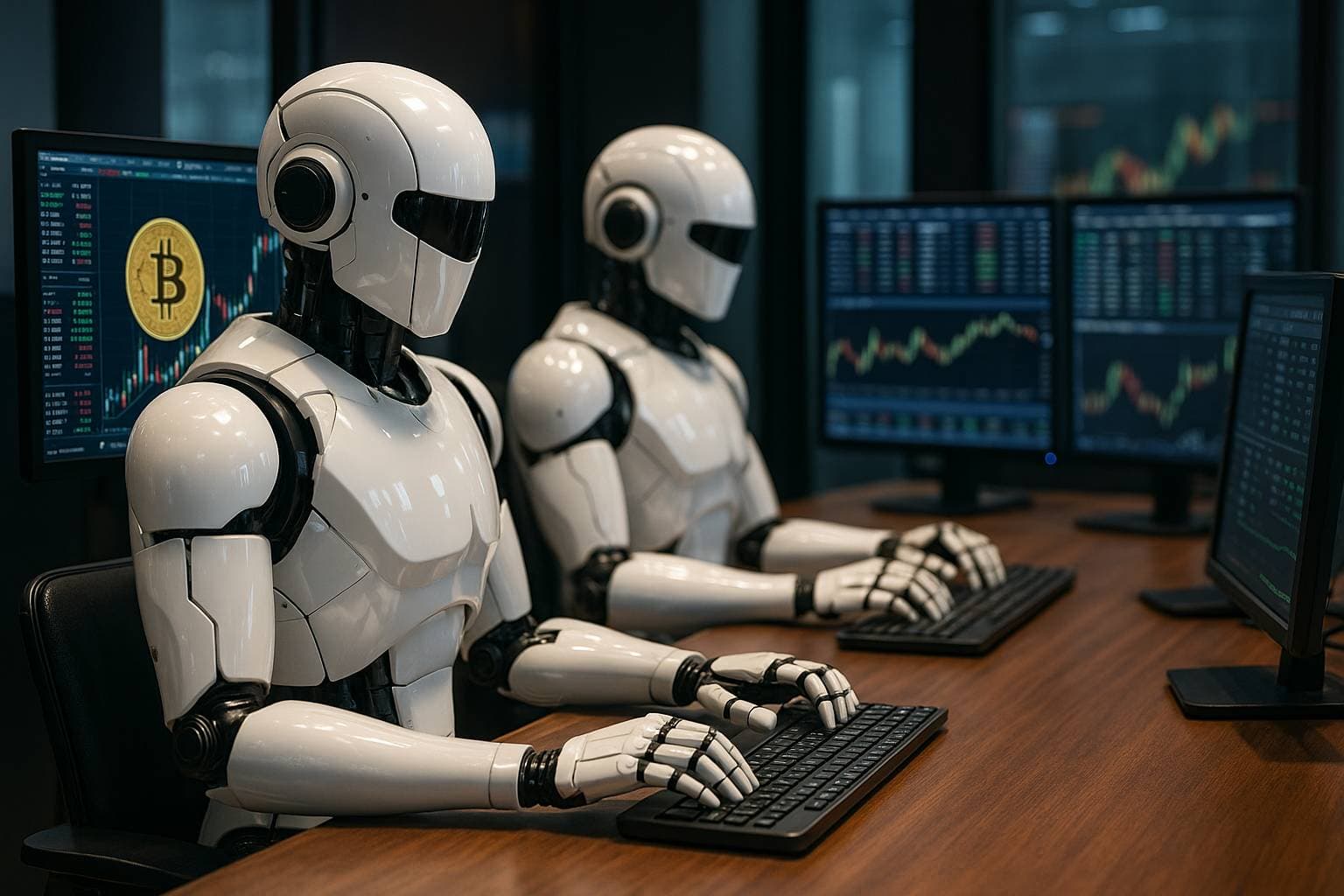The Dawn of Autonomous DeFi
Somewhere inside a liquidity pool, an AI agent just executed a trade—no human clicked a button. The transaction confirmed, the gas fee cleared, and the protocol barely noticed. This isn’t a futuristic fantasy. It’s the quiet emergence of autonomous agents—AI systems beginning to act as true market participants in decentralized finance.
Until now, most automation in crypto relied on bots: rule-based scripts reacting to price signals or indicators. But a new wave of intelligent agents is changing that. These AI-driven systems don’t just respond; they reason. They evaluate on-chain conditions, interpret strategy outcomes, and adjust behavior autonomously.
Projects like Fetch.ai, SingularityNET, and Autonolas have been quietly laying the groundwork for this transformation. Their goal isn’t simply to automate trades—it’s to build a network of self-governing entities that can operate, negotiate, and optimize within Web3 ecosystems.
“In the coming years, wallets won’t just be passive tools,” says one developer close to these projects. “They’ll become decision-makers that act for their owners.”
From Bots to Independent Market Participants
The difference between trading bots and AI agents is profound.
Bots follow strict logic: if X, then do Y.
AI agents, however, act with intent. They use natural language models, reasoning frameworks, and data feedback to make informed decisions—sometimes even inventing their own trading logic.
In DeFi, this opens up radical possibilities. Agents could manage liquidity positions across chains, balance impermanent loss, or even identify profitable yield opportunities in real time. Using emerging frameworks like LangChain, AgentFi, or Autonolas, developers are now building systems where agents communicate directly with smart contracts through APIs, without human intermediaries.
Within a year, it’s plausible that entire liquidity pools or vaults could be governed by autonomous agents optimizing yield 24/7—completely self-directed and self-learning.
Governance and Ethics in the Age of AI Agents
The next challenge is no longer technical—it’s ethical.
Can AI wallets hold voting rights in decentralized autonomous organizations (DAOs)?
If an agent submits a malicious proposal, who is responsible—the user, the developer, or the algorithm?
Some DAOs are already experimenting with AI-assisted voting, letting algorithms analyze data and recommend governance decisions. The idea of fully autonomous DAO delegates isn’t far off. Yet regulators are paying attention.
In Europe, the AI Act and proposed MiCA extensions may soon require that AI systems in financial networks disclose how they make decisions. Transparency, accountability, and human oversight will likely become the new norms—even in decentralized ecosystems.
A DAO run by AI agents could act faster and more rationally than humans—or descend into chaos if coordination fails.
Market Implications and Potential Flash Crashes
The economic impact could be massive.
AI agents could arbitrage across blockchains, execute cross-chain swaps, and rebalance portfolios faster than any human trader. They could even detect on-chain sentiment and front-run collective behavior.
But there’s also a dark side: herding effects.
If hundreds of agents follow similar reinforcement-learning strategies, their synchronized actions could trigger violent market swings—automated “flash crashes” driven purely by machine logic.
In 2024, researchers already observed algorithmic trading loops on Solana’s decentralized exchanges leading to cascading liquidations. The difference next time is that those loops might be self-taught, not programmed.
Risks: Prompt Poisoning and Data Manipulation
Recent academic research—like the 2025 paper “AI Agents in Cryptoland: Practical Attacks and No Silver Bullet”—warns that agents relying on real-world data can be manipulated.
Attackers could poison data sources, exploit oracles, or inject misleading context into agent prompts, causing them to make catastrophic on-chain decisions.
Imagine an agent trained to chase yield being fed false APY data—it could drain its own wallet or destabilize a protocol. The same machine logic that enables efficiency could, in the wrong conditions, amplify chaos.
The Human + Agent Future
Despite these risks, the likely future isn’t full automation—it’s collaboration.
Humans will delegate tasks while maintaining supervision.
AI agents will execute strategies, rebalance positions, and manage routine operations, but ultimate control will remain with users.
A new type of market may emerge: an “Agent Marketplace”, where verified AI trading agents can be rented, licensed, or subscribed to—each with reputation scores, performance histories, and on-chain accountability.
In this hybrid model, humans and machines will operate side by side, each amplifying the other’s strengths.
In DeFi’s next evolution, the smartest traders might not sleep, post, or panic—they’ll simply execute.
Keynotes
- AI agents are becoming autonomous participants in DeFi.
- They can trade, stake, and vote without human input.
- Regulation and accountability remain unresolved.
- Flash-crash risks may increase through synchronized agent behavior.
- The near future is a human–AI hybrid economy, not full automation.

